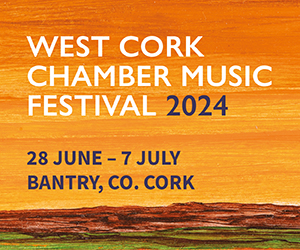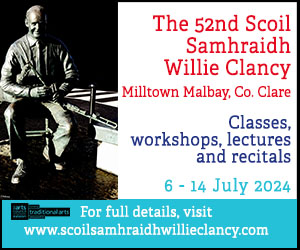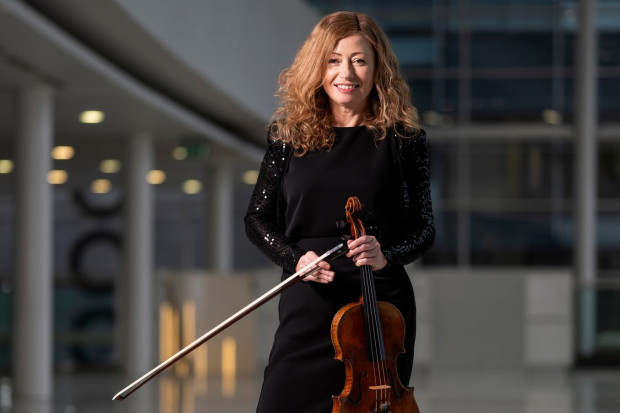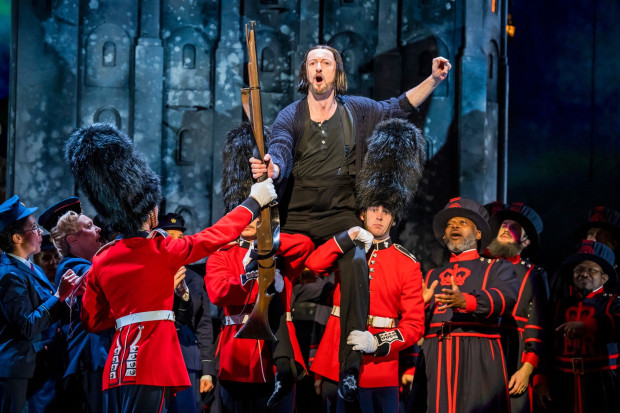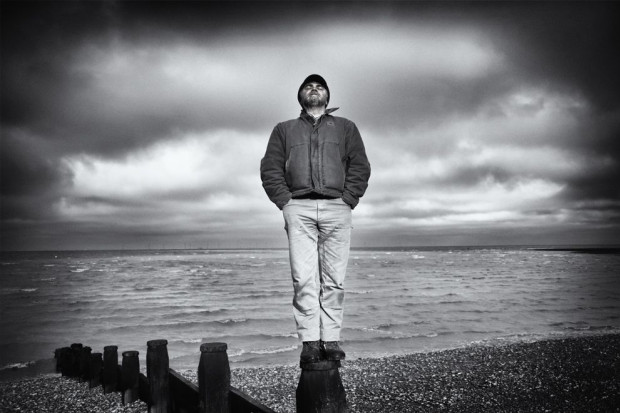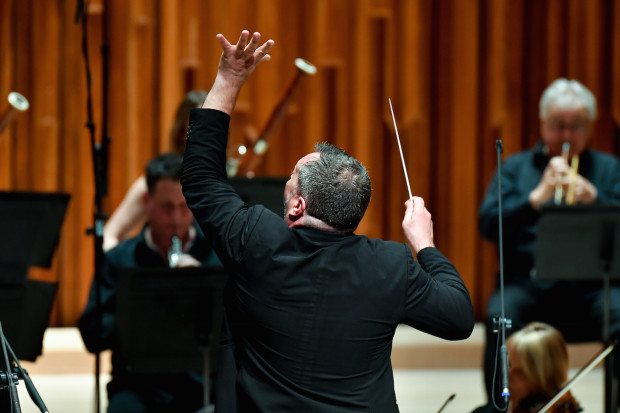
Choristers at the coronation of King Charles
Britain's National Musical Paradox
The BBC’s classical music station Radio 3 recently revised its schedules. Most of the changes were of no great significance, which is a relief. The BBC is, after all, an organisation that in 2023 decided it no longer needed a professional choir and announced the end of the BBC Singers, only to change its mind in the face of widespread and vociferous protests.
One feature of the rebooted Radio 3 has been a six-part series, The Land Without Music?, fronted by Times music critic Richard Morrison. This six-part series took its provocative title from Das Land ohne Musik, a book, first published in 1904, whose author, the German writer, Oscar A.H. Schmitz, concluded that the cause of England’s social problems was that it lacked ‘its own music’. Could this still be true? Morrison began his survey of the national musical landscape with the paradox of the 2023 coronation of King Charles III. How could an event full of such thrillingly well-executed musical performances have happened at a time when financial support for classical music is being cut to the bone? To answer the question Morrison enlisted the help of the great and the good of British music, from Master of the King’s Music Judith Weir to the chief executive of Arts Council England Darren Henley, and the former head of classical music at London’s South Bank Centre Gillian Moore. But although his interviewees have all been instrumental in shaping today’s British music scene, they mostly sounded like passive observers, witnesses to a culture in decline rather than people complicit in that decline.
In the second episode, ‘Grass Roots and Folk Revivals’, the same group of interviewees attempted to identify whether there is something intrinsically ‘British’ about music from Britain. A familiar set of contradictory answers was gathered. The music of Ralph Vaughan Williams is full of melodic inflections derived from English folk songs, but does that make it British? How British are the Gaelic melismata in James MacMillan’s choral music? And what about the stiff-upper-lip reserve of ‘Nimrod’ from Edward Elgar’s Enigma Variations? Typically English?
Reality strikes
Perhaps the Land without Music is also be the Land of Delusion. The subject of the third episode was the Edinburgh Festival and it began with its current director, the wonderful violinist Nicola Benedetti, talking about its origins in the depths of post-1945 austerity and its success in bridging between Scottish and international artists. This was followed by another round of soundbites from the interviewees who featured in every episode, all of them happy to assert the excellence of British music, even in the face of the nameless ‘challenges’ that haunted the whole series. But towards the end of the third episode reality struck, like a lightning bolt. In the midst of the hand-wringing about challenges, Kadiatu Kanneh-Mason pointed out that, without proper funding, the arts in Britain will wither. Dr Kanneh-Mason has brought up a family of remarkably gifted musicians, including her pianist daughter Isata and cellist son Sheku, so she knows every wrung of the musical ladder in Britain, from school to college to the professional stage. ‘All the opportunities have shrunk,’ she said: in conservatoires ‘the population is shrinking’ and, because of post-Brexit visa problems, European touring ‘has become prohibitively expensive’. The result? British culture has become ‘bitter and small and less’.
The fourth episode reminded listeners of the 1951 Festival of Britain. None of the interviewees was old enough to have been there, nor did they seem to know much about it, so the discussion quickly slipped from the Festival of Britain to the Festival of Benjamin Britten, begun in Aldeburgh in 1948, to Peter Maxwell Davies’ St Magnus festival in Orkney and to James MacMillan’s Cumnock Tryst festival. This led to another beloved trope of British music, the relationship between amateur and professional musicians. MacMillan talked about the vitality of the ‘choral ecosystem’ and in the sixth episode Gavin Higgins would return to the subject, extolling the importance of the brass band movement, although no one seemed sure whether amateur music-making was a virtue in itself, a breeding ground for audiences for professional musicians, or a forum for musical education.
Education provided the subject for the fifth episode, its title, ‘Education, Education, Education!’, recalling the Labour Party’s mantra for the 1997 election. Once again the narrative resembled a surreal obstacle course, in which two things had to be avoided: first, that, since 2010, British arts education has been stripped of resources, and second, that it will take a very different sort of government to begin the work of restoration. The conductor Martyn Brabbins explained how a culture of ‘nurture’ rather than ‘challenge’ was needed; what he meant was that the arts need more money. Darren Henley, on the other hand, was an apologist for the status quo. Under his leadership Arts Council England has redistributed a shrinking budget, creating what he nevertheless called a ‘vibrant and dynamic infrastructure’. But these days the Arts Council also involves itself in education, creating regional Music Hubs, and he gave an example of the ‘sort of economies’ that ‘work well’: ‘there might be enough work across the whole of Greater Manchester to have a bassoon teacher’. One bassoon teacher for a conurbation of nearly three million people?
The last episode, ‘Music for All’, was no more enlightening; the same voices, the same contradictory juxtaposition of ‘challenges’ and ‘wonderful music-making’. After nearly six hours of talk and music what had I learnt? Almost nothing about the reality of musical life in Britain today: the spending cuts, the obsession of arts administrators with the possibility that musical excellence might be ‘elitist’, the masquerade that presents the hollowing out of the musical infrastructure as some sort of opportunity for a more widely distributed creativity.
How we got here
What I did learn is that BBC Radio 3 is uncomfortable about how to balance its core business, broadcasting classical music, with the feeling that it should explain why it is doing this. The Land Without Music? included more music than talk – in the third episode, for example, over 36 minutes of music was interspersed with just 20 minutes of speech – yet the music was rarely more than incidental. Only once did a piece of music genuinely illuminate the debate, when in the ‘Education’ episode we heard Michael Wolters’ concerto for nine saxophones and symphony orchestra, There are more of them than us, played by the Royal Birmingham Conservatoire Orchestra; it’s music that in its celebration of difference, diversity and the talents of a new generation of musicians was far more eloquent than all the platitudes around it.
Is Britain a land without music? Of course it isn’t. But what was so frustrating about this series was that almost no one talked about how the British have ended up with the particular sort of musical life that flourishes on the island. The conundrum of modern democratic states is that voters want excellent hospitals, roads and railways – maybe orchestras and music colleges too – but they don’t want to pay for them. The result is a land with impoverished educational provision, overworked professional musicians whose financial security has become less and less certain, and yet a land in which amateur music-making continues to thrive. As someone might have pointed out – but no one did – this could equally well have described the British musical landscape in 1904, the year in which Schmitz published his book.
Listen back to A Land Without Music? at www.bbc.co.uk.
–
Subscribe to our newsletter.
Published on 15 May 2024
Christopher Fox is a composer, teacher and writer on music.







